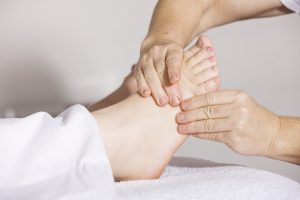Understanding the Role of a Hip Doctor: Expert Care for Mobility and Pain Relief
When it comes to mobility and quality of life, the health of your hips plays a crucial role. These ball-and-socket joints support your upper body, aid in walking, and absorb the impact of movement. Any injury or condition affecting the hip can significantly interfere with your daily routine and cause chronic pain. That’s where a hip doctor—also known as a hip specialist or orthopedic surgeon focused on the hip—comes in.
What Does a Hip Doctor Do?
A hip doctor specializes in diagnosing, treating, and managing conditions that affect the hip joint. These may include sports injuries, arthritis, bursitis, labral tears, fractures, and congenital hip disorders. They are often orthopedic surgeons who have undergone additional training to specialize in joint and musculoskeletal health.
- Patients often consult a hip doctor when they experience symptoms like:
- Persistent hip or groin pain
- Stiffness or reduced range of motion
- Difficulty walking or standing for long periods
- Clicking or popping sounds in the hip
- Pain that radiates to the thigh or lower back
Early evaluation by a hip doctor can prevent worsening conditions and help maintain your mobility and independence.
Diagnostic Tools and Evaluation
A hip doctor uses a combination of physical exams, patient history, and imaging tests such as X-rays, MRIs, or CT scans to determine the source of discomfort. They assess muscle strength, joint flexibility, and gait patterns to create a comprehensive understanding of the patient’s condition.
For example, hip arthritis may show up as joint space narrowing on X-rays, while soft tissue injuries like a labral tear may require MRI scans for confirmation.
Treatment Options
Not every hip issue requires surgery. Hip doctors often begin with conservative treatments, such as:
- Physical therapy
- Anti-inflammatory medications
- Corticosteroid injections
- Activity modification
- Weight management
If these measures don’t provide relief, or if the condition is advanced, surgical options may be considered. These include:
- Hip arthroscopy: A minimally invasive procedure used to treat labral tears or remove loose fragments.
- Hip resurfacing: A joint-preserving option for younger, active patients with arthritis.
- Total hip replacement: A highly effective procedure for severe arthritis or damage, replacing the joint with a prosthetic one.
When to See a Hip Doctor
If hip pain is affecting your quality of life, lasting more than a few weeks, or limiting your mobility, it’s time to consult a hip specialist. Early diagnosis and a personalized treatment plan can prevent further damage and significantly improve comfort and function.
Final Thoughts
Hip doctors are essential allies in restoring movement and reducing pain. Whether you’re an athlete recovering from a sports injury or a senior dealing with degenerative joint disease, a hip doctor can guide you toward healing and improved quality of life. With the right diagnosis and care plan, you can return to the activities you love—pain-free and confident.



